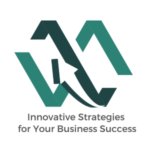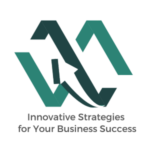The 5 best ways to manage your business finances
Business growth depends on financial planning and forecasting. It’s hard to do any of this efficiently and thoroughly as a small business owner. You’re not a numbers person or maybe it takes time away from running your business.
You don’t have to stress out about managing and analyzing your business finances anymore. Your financial management will be more effective and fruitful if you look for improvements proactively.
Here are some tips for managing your business finances better.
1.Invest in financial management software
The market is flooded with accounting and fintech apps. With these advanced platforms, small businesses, startups, and solopreneurs can automatically log transactions and keep track of account balances. These solutions can also prepare tax forms or integrate with tax prep software.
Whatever you decide, there’s no excuse not to invest in one (or several). You’ll have better control over budgets and expenses while also dedicating more time to your company’s most mission-critical, revenue-generating tasks. Test out your solutions, determine what accounting-related tasks can be optimized, and do your research.
If you are firmly against using any sort of accounting software, you should still be tracking things in spreadsheets so you can generate simple reports. This is a relatively easy step; banks, for example, usually let you export financial statements as spreadsheets. That being said, it could take enough time that it’s worth outsourcing to a freelancer for data entry and verification.
2.Decide which accounting method you’re going to use and stick with it
You can track your business financials several ways, and most businesses use either accrual or cash methods. There’s a difference between the two when it comes to changing the balance. Cash method records payments when they’re received, whereas accrual method records them when they’re sold.
It gives you a better snapshot and may help you with taxes, but it can also make you think you have more money than you do. However, the cash method gives you a clearer picture of current and historical cash flow, but it’s harder to forecast.
It’s important to stick with whatever method you choose. You can’t pick and choose what’s best for your business every year. It’s a recipe for losing transactions and creating unintended accounting fraud that can get you in trouble
3.Get your financials straight
Running a business doesn’t require you to be an accountant. You should at least know what your financial statements are, how they work, and how they relate. Profit and loss, balance sheet, and cash flow statements are the three basic financial statements.
An overview of how your business is doing is provided by a profit and loss statement. Based on your assets and debt, your balance sheet shows the health and stability of your business. If you have enough cash to pay your bills and keep running, your cash flow statement will tell you.
Separately, these statements can help you understand your business better. Together, they give you a clear picture of how you’re doing that makes it easy to make smart financial decisions. If you understand them, it’s easier to start creating forecasts and prepare proactively.
4.Generate reports automatically
It’s hard to analyze these financial statements if you’re spending all your time putting them together. Viewing and updating these statements separately can also be frustrating. Not to mention if you want to pull in payroll, CMS, or other reports to make it more colorful.
Instead of handling these things separately, it’s often better to leverage a tool that aggregates and generates financial reports automatically. With a dashboard, you can identify top-level opportunities and then dive into individual financial statements.
This functionality lets you customize what’s presented, share information, and sometimes even make adjustments directly from the report.
5.Get an accountant’s advice
It’s still hard and tedious to manage accounting even with all the latest tools. Due to how much accountants can differ, they need different certifications based on their specialties.
Outsourced accounting services are a great way to get an à la carte accounting experience on an as-needed basis, even if your company isn’t big enough to hire a full-time accountant. Many freelancers specialize in niche areas like accounts payable/receivable, bank reconciliation, payroll, taxes, and more.
By understanding current government programs, rules, and regulations for the current tax year, along with upcoming legislative changes, accountants can save money. The COVID-19 pandemic sparked a slew of government-funded programs, and you might not realize how many of them apply to you. Getting to know your numbers is important even if you have an accountant.
Your financial management process needs to be reviewed and refined
When you grow your business, it’s hard to keep track of everything. But modern tools let solopreneurs and small teams do more than ever before, and financial management is no exception.
By understanding your past and current performance, you can predict the future and ensure the organization’s financial health. Don’t forget to revisit the steps semi-regularly. You may find you can refine your practices and find more growth opportunities
You can design your own website. The easiest way to make sure your website can accomplish all of these goals is to hire a pro. You’ll have more time to run and grow your business.
Please download your brochure for your business plan below – Myinvestorchoice is ranked the number 1 Agency on Upwork for preparing business plans
FAQs
What are the types of menus?
How do menus impact customer experience?
What makes a menu design effective?
How can digital menus enhance dining experiences?
Long Tail Keywords
“Best menu design for cafes”
“Menu personalization for restaurants”
“Digital menu software comparison”

 Our Samples
Our Samples  Support
Support 


